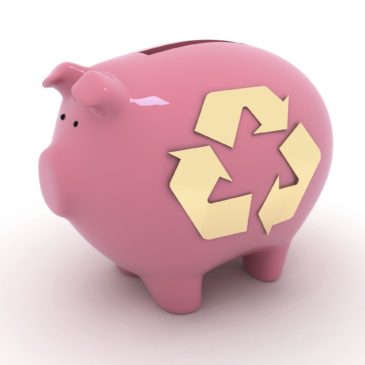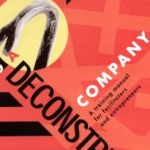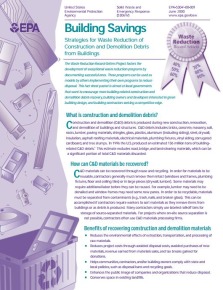Waste to Wealth Resources – Search Results
Return to Waste to Wealth home page
Page 4 of 7
Zero Waste: Replacing Waste Management with Discards Management in the Hong Kong Special Administrative Region
This report, completed for Greenpeace China, critiques plans to build a waste incinerator in Hong Kong and presents a more rationale non-burn discard management strategy. It provides a blueprint for moving toward zero waste policies and programs in Hong Kong. The report presents zero waste as a philosophy and a design principle for the 21st Century … Read More
Reduce, Reuse, Refill!
More than 70% of soda and beer containers are refilled in Finland, Denmark, and Germany, where policies are in place to require, if not support refilling. In the U.S., less than 5% of beverage containers are refilled. U.S. beverage companies offer their products for sale in Europe and elsewhere in refillables. Why not in the U.S.? … Read More
Recycling Means Business
Recycling is an economic development tool as well as an environmental tool. Reuse, recycling, and waste reduction offer direct development opportunities for communities. When collected with skill and care, and upgraded with quality in mind, discarded materials are a local resource that can contribute to local revenue, job creation, business expansion, and the local economic base.… Read More
Record Setting Recycling and Composting Programs
Twenty years ago, many solid waste planners thought no more than 15% to 20% of the municipal waste stream could be recycled. ILSR’s 1988 publication, Beyond 25%: Materials Recovery Age Comes of Age, shattered this myth. It featured 15 communities recycling 25% or more of their residential and commercial/institutional discards. Our 1991 report Beyond 40%: Record-Setting … Read More
Innovation, Leadership, Stewardship
Alameda County, California (pop. 1.46 million), diverts almost 60% of its municipal solid waste, making it one of the nation’s record-setting recycling communities. The Alameda County Waste Management Authority and Recycling Board deserves much credit. This glossy booklet — chock full of case studies and photographs — features the Board’s source reduction, reuse, construction material recycling, … Read More
Asian Countries Jump on the EPR Bandwagaon
This Facts to Act On features policies introduced in Japan, Korea, and Taiwan to make manufacturers take more responsibility for the products and packaging they produce. Korea, for instance, has instituted deposit-refund systems, non-refundable product fees, and design requirements for packaging. The country also has restrictions on the distribution of disposable goods. by Kelly Lease Download … Read More
Building a Deconstruction Company: A Training Manual for Facilitators and Entrepreneurs
ILSR’s manual provides an excellent resource for anyone interested in starting a deconstruction company. No matter whether you are an entrepreneur, community-based organization, construction-related company, or governmental organization, this manual will introduce to you to many of the steps needed to form a deconstruction company. The manual takes the reader from setup and funding, to planning, … Read More
Local Initiatives Leverage Extended Producer Responsibility
This Facts to Act On describes local initiatives to spur extended producer responsibility such as networking with industry in a voluntary approach, passing local resolutions, banning products that harm the environment, and developing purchasing protocols that encourage environmentally sound products. Efforts in Los Angeles, the Pacific Northwest, Minnesota, and elsewhere are covered. Includes links to actual … Read More
Building Savings: Strategies for Waste Reduction of Debris from Buildings
This fact sheet packet profiles seven building projects-from new construction to renovation and deconstruction-that are recovering 42 to 82% of materials otherwise destined for disposal. Policymakers wanting to encourage building material recovery, building owners and developers interested in green building design, and contractors seeking a competitive edge will find this document useful.… Read More
Serving Diverse Populations with Recycling
Serving Diverse Populations with Recycling by Mark Jackson 2000This case study, prepared for the California Integrated Waste Management Board, identifies barriers communities may face in delivering recycling services to diverse populations (multi-ethnic, low-income, tourist, student, elderly), and features how cities are overcoming these challenges.
Special Events
Recycling at Special Events by Kelly Lease 2000This case study, prepared for the California Integrated Waste Management Board, will help event organizers to reduce waste and local planners to establish programs and policies to encourage event recycling within their jurisdictions. It highlights efforts in California and elsewhere.
Office Building Models
Mini Trash Bins Help Office Settings Reduce Waste 50 Percent and More by Brenda Platt 2000Taking away people’s trash cans to reduce office waste is a novel concept-a concept that is spreading and resulting in high waste diversion. The heart of the system is making employees responsible for their trash by replacing their deskside trash can … Read More
Apartment Building Programs
Recycling in Multi-Family Dwellings by Kelly Lease 2000This case study, prepared for the California Integrated Waste Management Board, features programs and policies to encourage recycling in multi-family dwellings. It documents programs in Central Costa Contra, Davis, and Malibu (CA) as well as examples from across the U.S. Complex Recycling Issues: Strategies for Record-Setting Waste Reduction in … Read More
Food Scrap Recovery
Food Waste Recovery by Brenda Platt, 2000 This case study, prepared for the California Integrated Waste Management Board, features food recovery initiatives in San Francisco, Berkeley, and Santa Cruz County. It details collection systems for the commercial and institutional sector, collection of residential food discards with yard trimmings, and on-site composting of private sector food scraps. … Read More
Case Studies of Innovative Recycling Strategies Prepared for the California Integrated Waste Management Board
These five case studies of innovative recycling strategies were prepared for the California Integrated Waste Management Board (CIWMB) to help jurisdictions meet the state’s 50% diversion goal. Each case study details model programs, costs and benefits, tips for replication, contacts, and resources for more information. Food Waste Recovery by Brenda Platt This case study features food … Read More






